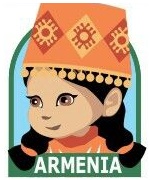Arount The World Tripoli Libya Americans evacuated
Tripoli, Libya
Americans evacuated: With a civil war threatening in Libya, the U.S. State Department has urged Americans to leave the country immediately. The Pentagon said it was sending a warship with 1,000 Marines to the region for a possible evacuation of U.S. diplomatic officials. The turmoil began last month, when renegade Gen. Khalifa Haftar launched a bloody assault against Islamist militias in Benghazi and then attacked the parliament in the capital, Tripoli. Last week, the parliament approved an Islamist-backed government and called for new elections, and now Libya’s many armed militias have begun aligning themselves with either the government or Haftar.
Tuxtla Guti?rrez, Mexico
Subcomandante Marcos quits, maybe: The leader of the Zapatistas, a rebel movement working for indigenous rights in Chiapas state for the past 20 years, stepped down this week in a vaguely worded statement. “I declare that Subcomandante Marcos ceases to exist,” said Marcos. “Through my voice he will no longer speak for the Zapatista National Liberation Army.” Marcos signed the written statement as Subcomandante Galeano, the name of a rebel killed in an intertribal clash last month—which could mean he intends to remain spokesperson for the group under a new name.
Bogot?, Colombia
FARC at 50: The Revolutionary Armed Forces of Colombia (FARC) guerrilla group marked its 50th birthday this week with the announcement that it is ready for peace. In its heyday, FARC commanded 20,000 fighters and ran the cocaine trade through its connections with crime syndicates and terrorist groups across the world. Now, after the U.S. poured $9 billion into Colombia’s anti-terrorist effort, it has only around 7,000 fighters and controls a small swath of territory. “We dream of an effective peace,” said the group’s leader, Rodrigo Londo?o Echeverri, aka Timochenko. FARC has been negotiating with the government for 18 months in Havana, and Echeverri says a deal is close. But, he added, “we will continue to fight as long as it takes if the oligarchy again insists on impeding peace.”
Bras?lia, Brazil
World Cup protests: Bow-and-arrow-wielding indigenous chiefs joined protesters this week in a demonstration against the soccer World Cup, which starts in two weeks. Wearing face paint and feather headdresses, hundreds of Amazon tribal chiefs clashed with police in Bras?lia, and at least one officer was hit in the leg with an arrow, which had to be removed by surgeons. Protesters said the soccer tournament’s $11 billion budget should have been spent on programs to help the country’s poor. Meanwhile, Brazil’s largest city, S?o Paulo, experienced its worst traffic jam ever last week, raising fears that it will not be able to handle the onslaught of tourists for the World Cup. At evening rush hour, fully 40 percent of S?o Paulo’s streets—more than 200 miles of road—were gridlocked.
Zurich
Assisted suicide for the healthy: The Swiss right-to-die group Exit has begun offering its suicide assistance to elderly people who do not have terminal illnesses. At its annual meeting this week, Exit added “suicide due to old age” to its list of services. The group said it had received numerous requests from elderly individuals who had been mulling suicide for years. Religious groups and doctors’ groups condemned the new practice. “It gives us cause for concern,” said Dr. J?rg Schlup of the Swiss Medical Association, “because it cannot be ruled out that elderly healthy people could come under pressure to take their own life.” Euthanasia has been legal in Switzerland since 1942.
Warsaw
Martial legacy: Poles greeted the death of their last Communist leader, Gen. Wojciech Jaruzelski, this week with a bitter debate over his legacy. The government said the general, who died at age 90, would be buried at the elite Powazki military cemetery, but without the pomp usually given former heads of state. Jaruzelski imposed brutal martial law on Poland in 1981 as a response to the Solidarity protests against Communist rule. His supporters say his action staved off a Soviet invasion that would have crushed the pro-democracy movement, while his many detractors called him a power-hungry Kremlin stooge. The government said Prime Minister Donald Tusk would not attend the ceremony.
Kabul
Obama visits: Accompanied by country music star Brad Paisley, President Obama made a surprise visit to the troops in Afghanistan for Memorial Day. “After all the sacrifices we’ve made, we want to preserve the gains that you have helped to win,” said Obama. “We’re going to make sure that Afghanistan can never again, ever, be used again to launch an attack against our country.” He later announced that the U.S. would keep 9,800 troops in the country following the end of combat operations in December. Outgoing President Hamid Karzai has refused to sign an agreement that would allow U.S. troops to remain, but both candidates in the upcoming runoff election to replace him say they will do so.
Cairo
Voters unenthusiastic: Fearing that low turnout would undermine the mandate of expected presidential election winner Gen. Abdel-Fattah el-Sissi, Egyptian authorities kept the polls open for three days this week instead of two. El-Sissi’s only rival, leftist Hamdeen Sabahi, had little support and was never seen as a serious threat, but the military wanted el-Sissi to win enough votes to be able to claim the backing of the people. The Muslim Brotherhood, banned since its leader was ousted last year, urged its many supporters to boycott the vote, and sweltering heat kept many others away.
Lahore, Pakistan
Honor killing in public: A pregnant Pakistani woman who had married against her family’s wishes was battered to death by her father and brother this week on a busy Lahore street as a crowd of men looked on. Farzana Parveen, 25, had just left her lawyer’s office and was walking to the courthouse to testify that she had not been coerced into marriage when her brother began beating her with bricks from a nearby construction site. The brother fled, and her father, Mohammad Azeem, was arrested. In an interview from jail, Azeem said he’d killed his daughter to preserve the family’s honor. Last year, at least 869 women were killed by their families in Pakistan after marrying or dating unapproved men, or after being raped.
Delhi
Modi extends hand: Indian Prime Minister Narendra Modi was sworn in this week and spent his first day on the job meeting with the leader of India’s historic enemy, Pakistan. Pakistani Prime Minister Nawaz Sharif described their 50-minute talk as “good and constructive,” and “held in a warm and cordial atmosphere.” India has long accused its neighbor of supporting terrorists, including those who killed 164 people in a Mumbai rampage in 2008. Modi reportedly asked Sharif to speed up the investigation into that attack. The two nuclear-armed countries, though, have yet to agree to resume their stalled dialogue over the disputed province of Kashmir.
Beirut
Support for Assad: Syrian refugees massed by the thousands in Lebanon this week to vote President Bashar al-Assad into a third term. The Syrian opposition had called for a boycott, saying the vote—which opens in Syria itself next week but began this week for expats and refugees abroad—was rigged and illegitimate. But many of the more than 1 million Syrians in Lebanon support Assad and waited in long lines in the blazing sun to show it. “Bashar is promising to retake control and let us rebuild our lives,” said one voter. “That’s all we can ask for now.” Opposition activists said they feared that, after three years of civil war, Syrians had lost hope that there was any alternative to Assad.
Jerusalem
Pope as peace broker: Offering himself as mediator, Pope Francis has invited the Israeli and Palestinian presidents to the Vatican for a prayer summit meeting next week. On a visit to Israel, Jordan, and the West Bank this week, the pope became the first pontiff to call the Palestinian territories the “state of Palestine.” In a departure from protocol and from his schedule, he prayed at the controversial security barrier in Bethlehem separating Israel from the West Bank. The pope also met with Holocaust survivors in Israel, kissing their hands, and laid a wreath on the tomb of Theodor Herzl, the founder of modern Zionism. But the main purpose of his visit was a meeting with Patriarch Bartholomew, leader of the world’s Orthodox Christians, and the two prayed together in Jerusalem’s Church of the Holy Sepulchre.
สมัครสมาชิก:
ส่งความคิดเห็น (Atom)
GIRL COMIC banner small 4
ขายการ์ตูนออนไลน์ การ์ตูนตาหวาน การ์ตูนผู้หญิง การ์ตูนสยองขวัญ การ์ตูน Princess หมึกจีน แบบ pdf ดูในคอมพิวเตอร์หรือแท็บเล็ต ดูรายชื่อการ์ต...

-
ขายการ์ตูนออนไลน์ การ์ตูนตาหวาน การ์ตูนผู้หญิง การ์ตูนสยองขวัญ การ์ตูน Princess หมึกจีน แบบ pdf ดูในคอมพิวเตอร์หรือแท็บเล็ต ดูรายชื่อการ์ต...
-
Military case - The Baltic Submariners During years of the World War II, submarines were fighting in all seas and oceans. the Baltic Sea was...
-
Phalaenopsis (Blume 1825) is a genus of approximately 60 species of orchid(family Orchidaceae). The generic name originates from the Gree...



















































ไม่มีความคิดเห็น:
แสดงความคิดเห็น